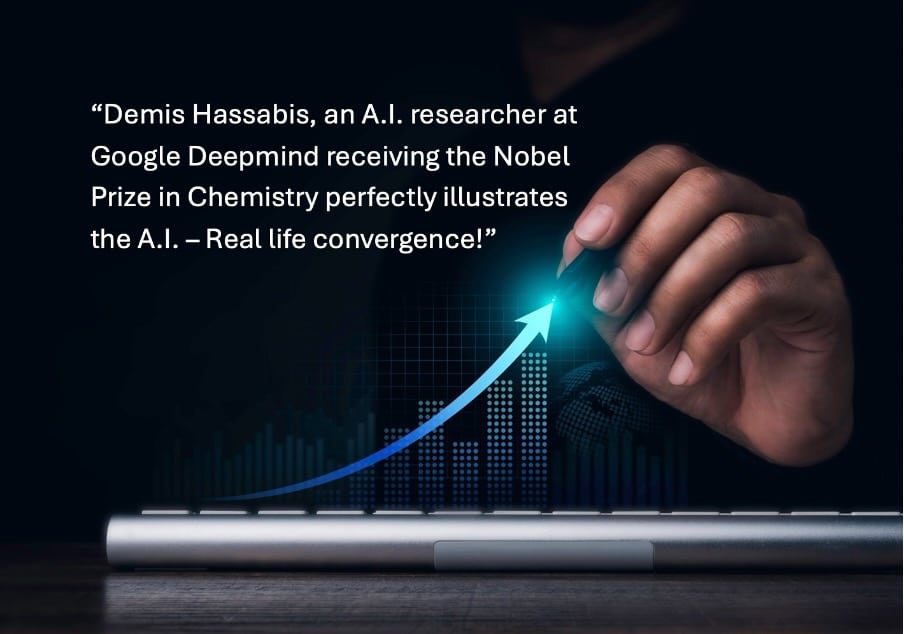The rapid evolution of artificial intelligence in 2024 has reshaped our world in ways previously confined to science fiction, as tech giants and emerging players compete to capture the future of this transformative technology.
Breaking Barriers: AI’s Quantum Leap in Capabilities
The artificial intelligence landscape underwent a deep transformation in 2024, with industry leaders driving unprecedented breakthroughs. OpenAI maintained its pioneering position with GPT-5 research, while Anthropic’s Claude 3 series and Google’s Gemini set new benchmarks in reasoning and multimodal capabilities. Microsoft’s deep integration of AI across its product ecosystem – backed by its OpenAI partnership -demonstrated how AI could enhance everyday computing. These advances enabled AI systems to tackle increasingly sophisticated tasks, from scientific research assistance to video production, while trying hard to reduce highly toxic “hallucinations”.
From Labs to Life: AI’s Integration Revolution
The integration of AI into daily life accelerated dramatically, with major tech companies leading the charge. Surely, Demis Hassabis, an A.I. researcher at Google Deepmind receiving the Nobel Prize in Chemistry illustrates the “A.I. – Real life” convergence! Amazon revolutionized retail and logistics with advanced AI systems, while Apple introduced groundbreaking on-device AI features. In healthcare, companies like DeepMind and Nvidia partnered with medical institutions to develop AI systems capable of assisting in medical diagnosis and drug discovery. Meta’s advances in augmented reality combined with AI created new paradigms for social interaction, while IBM’s enterprise solutions demonstrated AI’s transformative potential in business operations. This mainstreaming of AI technology sparked crucial discussions about digital literacy and society’s adaptation to an AI-augmented future.
“Demis Hassabis, an A.I. researcher at Google Deepmind receiving the Nobel Prize in Chemistry perfectly illustrates the A.I. – Real life convergence!”
What’s next in 2025?
2024 marked a turning point in AI governance, with industry leaders taking proactive steps toward ethical AI development. As systems became more powerful, governments worldwide began implementing comprehensive regulatory frameworks, with the EU’s AI Act setting a global precedent. The tech industry’s response is surely coming, but it is too early to judge. The interference of corporate titans with politics may be part of this reaction. What’s next? 2025 will be equally important but more challenging for A.I., since all the low hanging fruits are gone. Going forward, all A.I. players face a huge problem: the cost and energy required to generate a small improvement are gigantic. We could call this the “A.I. exponential law”. This could lead to the usage of “Synthetic data: feeding A.I. generated data to train an A.I. And surely, this could generate new risks for our societies and environment, and new opportunities.



















